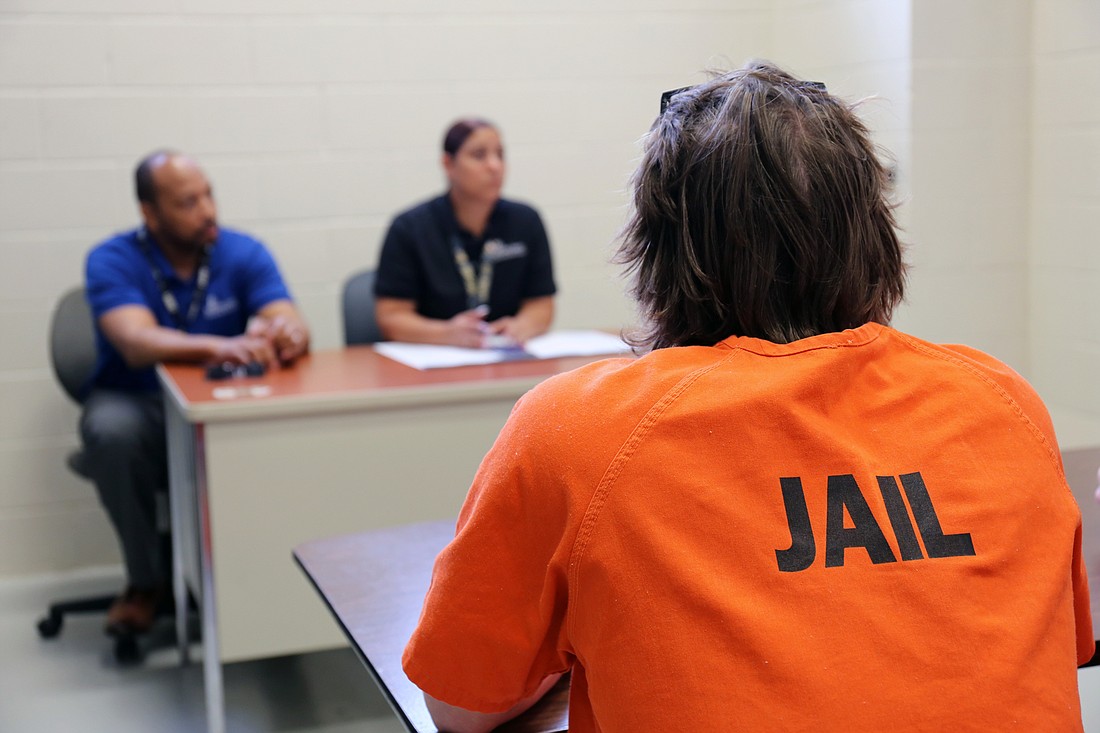- April 17, 2024
-
-
Loading

Loading

The Sarasota County Commission is cautiously moving ahead with plans to create a special taxing district to support mental health organizations, asking what it would take to draft an ordinance supporting the district.
A ballot initiative planned for the November 2020 election was pulled over economic uncertainties connected to the COVID-19 pandemic. But now commissioners are ready to move forward.
Commissioners would set an earmarked millage rate to support mental health services in unincorporated areas, though cities could participate.
Commissioner Mike Moran, who first broached the subject of a special district, suggested 0.1 mill in fiscal year 2022 to support the district. A tenth of a mill would amount to a tax of $20 on a home with a taxable value of $200,000. It would raise an estimated $3.9 million annually.
The funds would help area organizations run programs that help address mental health issues through a variety of programs. A 2019 mental health scan conducted in the county found that 12.1% of Sarasota County’s 24-and-under population, or about 10,177 people, have an untreated mental illness.
In the process of revisiting the district, John Annis, the senior vice president for collaboration and impact of the Charles & Margery Barancik Foundation said those numbers have increased during the pandemic.
“The pandemic did not make mental health any better,” Annis said. “In fact, every piece of research I’ve read has talked about how bad it has been for our mental health, so this is the right time to make this investment.”
If approved, it would be up to the county to divide the funding.
Commissioners could have the Human Services and Advisory Council decide how best to split the funds, they could choose a priority for the year and dedicate a percentage to a corresponding organization or they could create a subcommittee of experts to determine the biggest issues.
One organization vying for funds is First Step of Sarasota, which launched a pilot program for a Behavioral Health Response Team that serves people with behavioral health needs while improving interactions between those individuals and law enforcement personnel.
The program, launched in October 2020, identifies people who have frequent law enforcement encounters who are struggling with mental health issues and helps provide them with services before it escalates to a level where law enforcement gets involved.
Data from the four-month pilot program showed that professionals handled 80 crisis calls, diverting 100% of those calls from first responders, emergency rooms and jails. Additionally, 86% of the people in crisis were diverted from involuntary admission and instead received appropriate professional care.
“We know who they are, we know they could go into crises and we know that their families are struggling to get help,” President Tom Knight said. “So we want to go to them in advance, have a conversation with them while they’re not in crises and offer them a support plan.”
The grant for the program, funded from the Gulf Coast Community Foundation, runs out Sept. 30. Knight is now seeking county funds for the program at a cost of $974,000.
“We don’t really have anything in this county going like this,” Knight said. “ … but if we can interact with these individuals on the front end, who knows what we’re potentially stopping on the back end.”
Although they haven’t promised funds to any organizations, commissioners agreed the best way to tackle mental health in the county is through a dedicated revenue stream.
“I’ve seen this over and over in the legislature,” Commissioner Nancy Detert said. “The gold standard is a dedicated source of revenue.”
A public hearing to consider adoption of an ordinance creating the special district is tentatively set for June 8. Commissioners will set a final millage rate during budget discussions in mid-July.